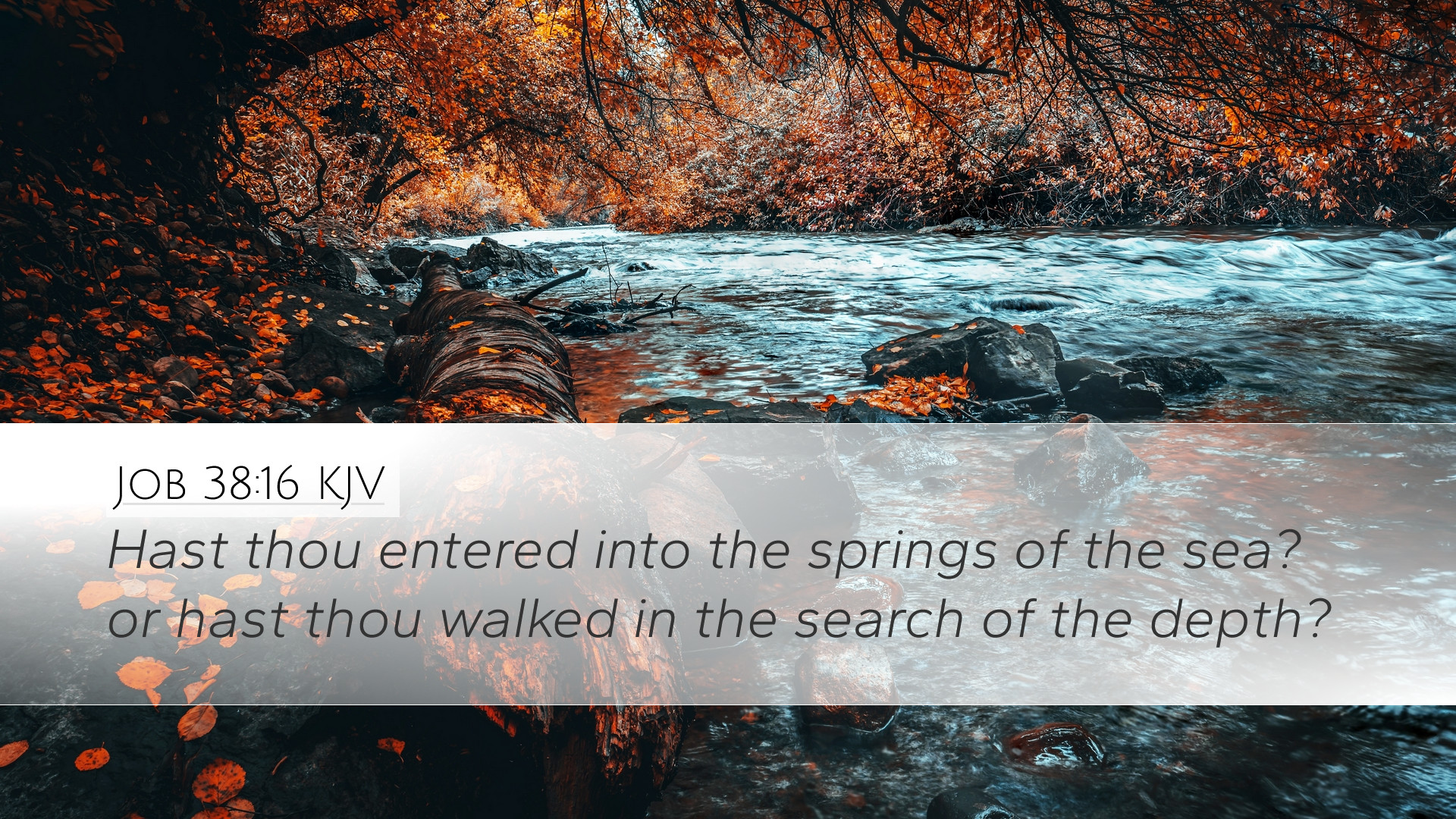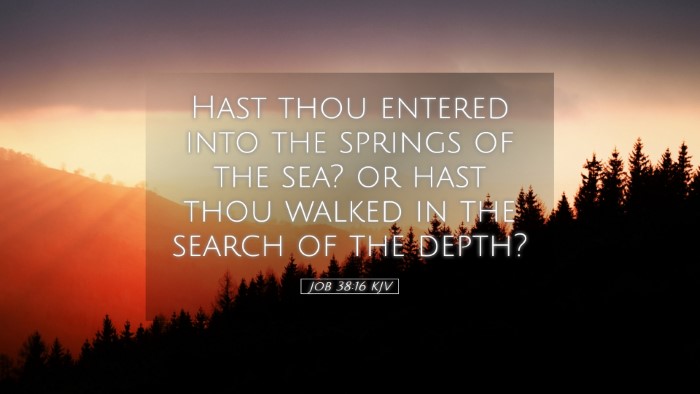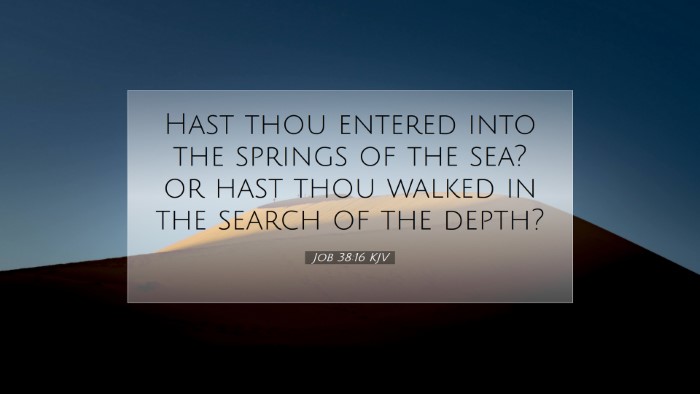Commentary on Job 38:16
Verse: "Hast thou entered into the springs of the sea? or hast thou walked in the search of the depth?"
This profound verse from the Book of Job is part of God's response to Job in the midst of his suffering and questioning. It invites deep contemplation and reflection on the sovereignty and omnipotence of God in relation to creation.
1. Context of Job 38:16
The context of this verse is crucial for understanding its significance. Job, a righteous man, endured immense suffering and loss, leading him to question the justice of God. In response, God speaks from the whirlwind, elevating Job’s perspective from his turmoil to the vastness of creation and the divine purpose behind it.
2. Analysis of the Key Phrases
2.1 Entranced by the Depths
“Hast thou entered into the springs of the sea?” This phrase explores the mysteries of the ocean depths. The imagery of springs suggests sources of life, and it symbolizes areas of creation that are unfathomable and beyond human reach. Commentators like Matthew Henry emphasize that the depths of the sea are metaphorical for the depths of God's wisdom and power. It compels readers to acknowledge human limitations when confronting divine concerns.
2.2 Exploration of the Unknown
“Or hast thou walked in the search of the depth?” Here, God challenges Job’s understanding and ability to probe the mysteries of existence. Albert Barnes points out that the depth of the ocean represents the impenetrable secrets of creation and divine governance. The notion of 'walking in the search' conveys an endeavor that is both ambitious and ultimately futile without divine guidance.
3. Theological Implications
This verse digs deep into the foundational questions of theology regarding God's omnipresence and omnipotence. The questions posed illustrate that God is the creator of the universe and controls all entities within it. Adam Clarke elaborates on this by noting that God’s creation extends beyond human understanding, highlighting the limitations of human wisdom when juxtaposed with divine knowledge.
4. Reflections for Believers
For pastors and theologians, this passage serves as a contemplative anchor in sermons and teachings. It illustrates the necessity of humility in the face of life's challenges. It invites believers to trust in God's overarching wisdom rather than leaning on their understanding, especially in times of hardship or confusion.
- Humility before God: The comparison of our knowledge to God's omniscience is a call for humility.
- Faith in the Unknown: Believers are encouraged to have faith, even when they cannot see the reasons behind their suffering or circumstances.
- Exploration of God’s Creation: The curiosity about creation can lead believers to a greater appreciation for God’s artistry and majesty.
5. Application of Job 38:16
As we meditate on this verse, it calls us toward a reverent attitude in our relationship with God. Here are some applications for modern readers:
- Embrace Mystery: Recognize that not all of life’s mysteries can be solved or fully understood within the constraints of human reasoning.
- Seek Wisdom: Pursue wisdom through prayer and scripture to navigate the depths of life.
- Trust God's Plan: In moments of suffering or confusion, remembering God's vast capabilities can renew hope and strengthen faith.
6. Conclusion
Job 38:16 challenges the reader to an awe-filled recognition of the creator's power. While Job's inquiries were sincere and human, the answer God provides serves as a reminder of the magnificent sovereignty of God over all creation, including the very seas and depths Job sought to understand. This verse remains a vital component of theological reflection, urging believers to cultivate humility, trust, and reverence for God's unfathomable wisdom.


